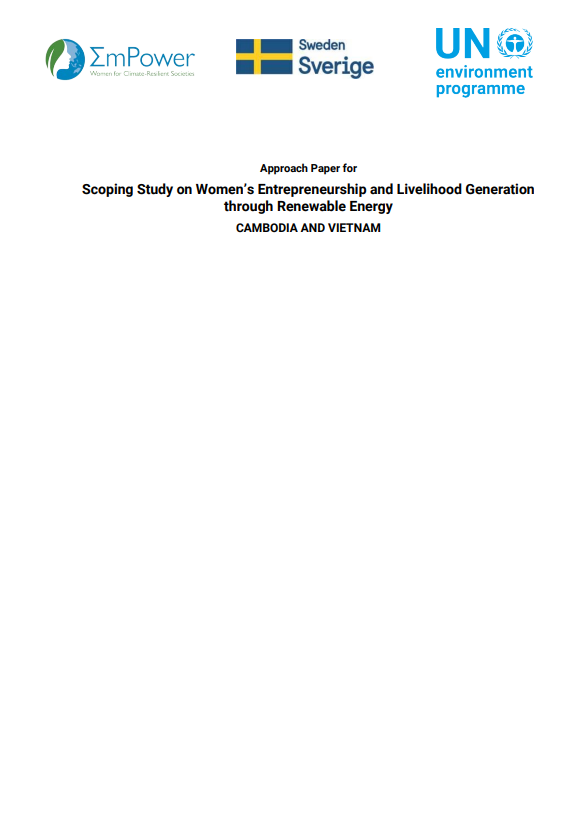
Scoping Study on Women’s Entrepreneurship and Livelihood Generation through Renewable Energy in Cambodia and Viet Nam

The purpose of the scoping study is to carry out a preliminary assessment in cluster of villages, which have potential for developing and enhancing women’s enterprise and their income generating activities through renewable energy. The specific objectives of the study are:
- In-depth understanding about women’s existing livelihood and household activities, impact of climate hazard-prone rural livelihoods, challenges faced and possible livelihood and enterprise development options that is climate resilient and can be supported through renewable energy (both as selling of renewable energy products as well as using renewable energy for other enterprise development). This will be done through detailed discussion with the community and local stakeholders (men and women).
- In-depth understanding of the interventions in the past, current and planned, and a record of success and failures of existing schemes, etc. This will be done through detailed discussion with other institutional players such as Government Departments, NGOs, network of social institutions, financing institutions/Bank or any bilateral livelihood programs in the area.
- Strategies developed for project interventions in order to create and develop sustainable, climate resilient livelihood options through renewable energy.
The districts and cluster of villages will be identified based on the interactions with the provincial and district administrations, partner’s view and experience as well as on certain selection criteria as mentioned below. The scoping studies will also cover listing down other developmental activities/initiatives undertaken by government or any other institutions in the districts, any existing funding mechanism to support women or livelihood generation activities, any capacity building programmes and or similar relevant information.